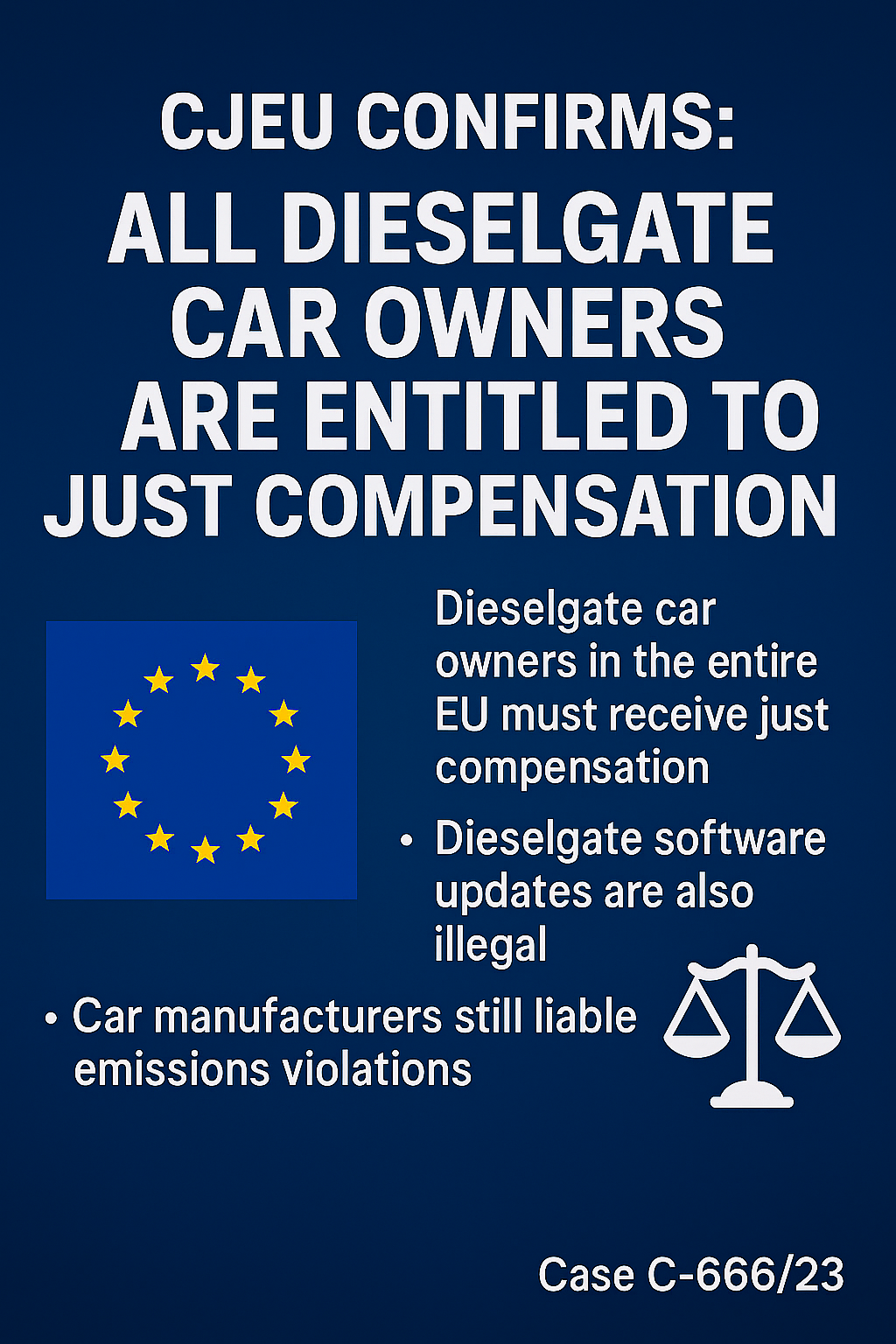ECJ Advocate General: Software-Updates Also Constitute Illegal Defeat Devices
In his opinion of 23.09.2021, the ECJ Advocate General Athanasios Rantos recommends that the ECJ also classify the thermal windows contained in the software updates as illegal defeat devices. As in general, the ECJ follows these requests in its later decisions. It is therefore likely that the software updates applied by the car manufacturers will also not result in vehicles affected by Dieselgate complying with the legal requirements. This means that further vehicle recalls and decommissioning cannot be ruled out in the future.
If the ECJ should follow the opinion, this would have an impact on the entire automotive industry
The relevant proceedings before the ECJ (Cases C-128/20, C-134/20 and C-145/20) deal with a request for a preliminary ruling from an Austrian court. The main issue is the admissibility of a software update that was subsequently installed on the plaintiff's vehicle. However, since the German Federal Motor Transport Authority had previously considered these updates to be permissible, the Austrian court referred the question to the ECJ in a preliminary ruling procedure as to whether the thermal window contained in the update is a defeat device that is impermissible under EU law.
The Advocate General of the European Court of Justice has now clarified that, in his view, these thermal windows are inadmissible defeat devices under EU law, since exhaust gas recirculation only functions properly between 15 and 33 degrees Celsius and when the vehicle is driven below 1000 meters. If these conditions are not met, the exhaust gas purification system switches off and the vehicle emits emissions that are significantly above the limit values.
It is not clear whether the affected diesel engines can actually be "saved" by software updates.
In the opinion of the Advocate General, however, the conditions specified by the thermal window are not representative in factual terms, as an average temperature of over 15 degrees Celsius is not achieved, particularly in Central European countries. The topography in Europe is also anything but uniform, so that it cannot be assumed that the representative consumer does not drive below an altitude of 1000 meters. Therefore, the conclusion is that an impermissible defeat device must be assumed.
The fact that the Advocate General has found such clear words gives a good foretaste of the decision expected soon from the European Court of Justice. As a rule, the Court follows the recommendations of the Advocate General in its decisions, so further improvements and software updates can be expected in the near future. However, it is still doubtful whether the car manufacturers will even be able to get a diesel engine to comply with the legal requirements with further software updates. Also, the engines are built in such a way that the permanent use of exhaust gas purification leads to significantly increased wear and tear and thus the service life of the vehicle is significantly shorter.
This means that official decommissioning measures for individual consumers cannot be ruled out. Buyers of an affected diesel must therefore continue to fear.
Learn more about how to enforce claims for damages in Dieselgate cases here.










